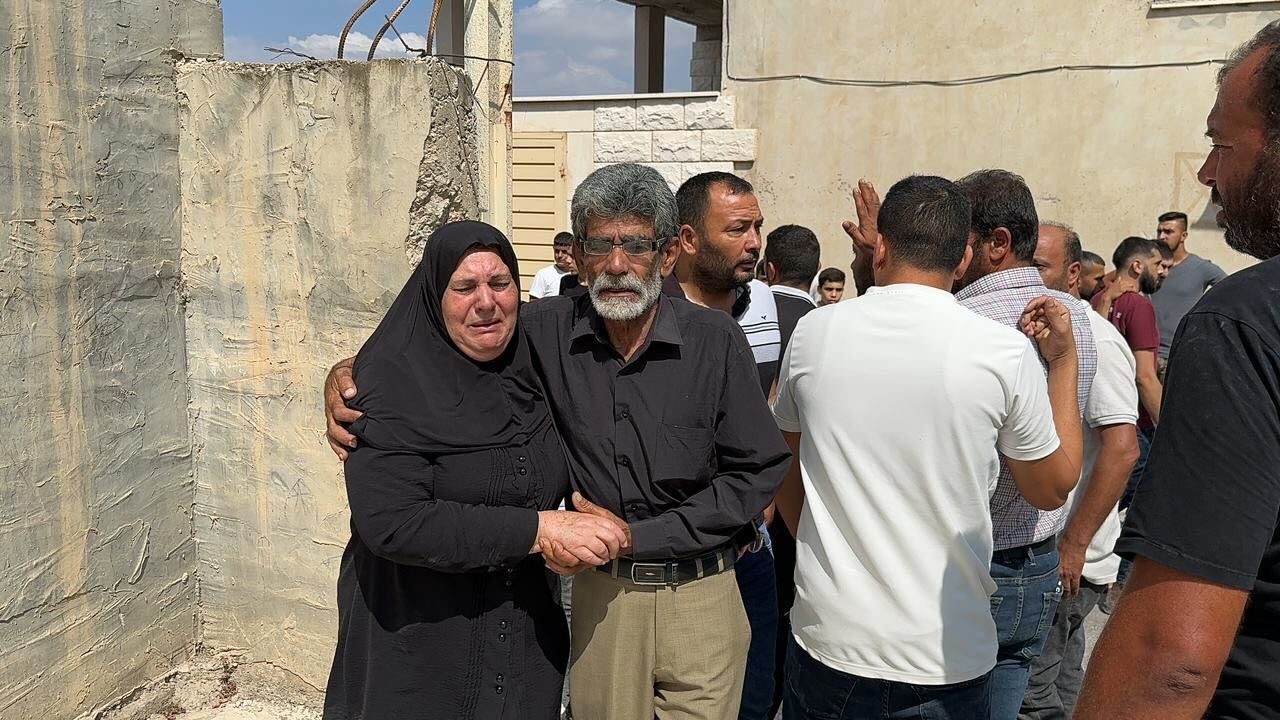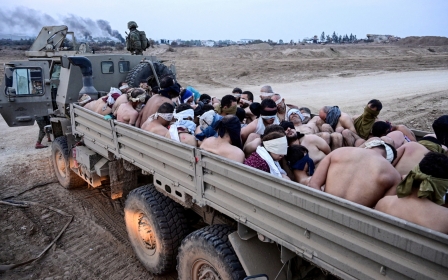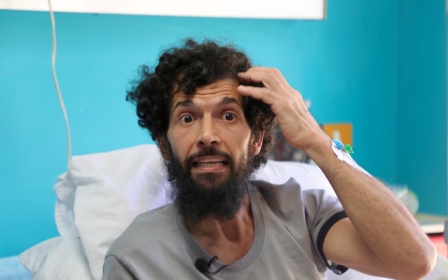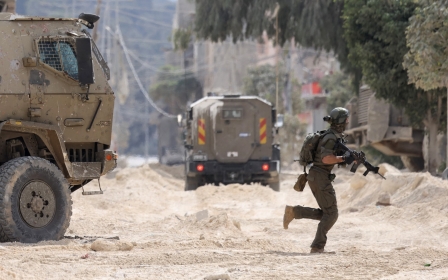Israel arrested a Palestinian. Two hours later soldiers returned with his body
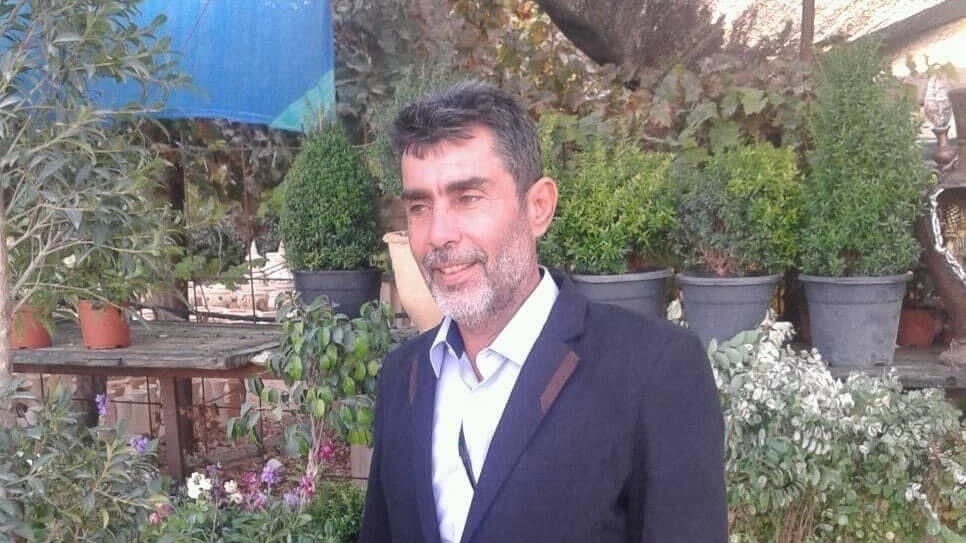
Israeli forces detained a 58-year-old Palestinian man on Monday morning, returning him to his family two hours later dead and covered in marks that indicated he had been tortured and badly beaten in custody.
Soldiers raided the house of Ayman Abed in the northern occupied West Bank village of Kafr Dan at around 3.30am, his family told Middle East Eye.
According to Isra Abed, Abed’s daughter, Israeli soldiers took him into custody at 6am, returning shortly after with his dead body.
“We believe they tortured him in a military jeep because it didn’t take a lot of time until they sent him back as a body,” Isra told MEE.
“I saw his body and he had signs of torture on him on his nose, hair, hands and other areas. It’s obvious he went through severe torture, and it’s also clear that he was beaten.”
New MEE newsletter: Jerusalem Dispatch
Sign up to get the latest insights and analysis on Israel-Palestine, alongside Turkey Unpacked and other MEE newsletters
The Palestinian Red Crescent Society also said Abed’s body displayed signs of torture, and that he had been transferred to a hospital in Jenin, 8km from Kafr Dan.
“My father didn’t suffer from any health issues. He never complained about any health problems,” Isra said. “He has never been detained before or been summoned for interrogation.”
Mohammed Atiq, a journalist from Jenin, told MEE that he saw the body after the Israelis returned it around 8am.
“He had many signs of torture on his face and it’s clear that they brutally beat him. You can see the signs on his chest and other areas,” he said.
Middle East Eye has asked the Israeli military for comment.
Two of Abed’s four sons are in Israeli prison. A third is believed to have been wounded in recent fighting in Jenin and is wanted by Israel.
The Palestinian Prisoners' Club, an NGO supporting detainees in Israeli prisons, said the military had carried out repeated raids on the Abed family home in recent days to pressure his son into surrendering himself.
Isra said the soldiers broke through the door without waiting for her mother to open it and beat her 15-year-old brother, smashing his phone, interrogating him and going through his social media posts.
Since the 7 October Hamas-led attack on Israel and subsequent war on Gaza, Israeli forces have detained around 1,400 Palestinians in the occupied West Bank, according to the Palestinian Prisoners’ Affairs Authority.
Thousands more Palestinians in Gaza have been detained in the same period and have faced appalling conditions. Middle East Eye and other media have reported on various cases of torture, ill-treatment and sexual abuse in Israeli detention facilities.
B’Tselem, Israel’s largest human rights group, has called the Israeli prison system a “network of torture camps”.
In a report published last month, B’Tselem said it had collected testimonies that “clearly indicated a systematic, institutional policy focused on the continual abuse and torture of all Palestinian prisoners held by Israel”.
According to the Palestinian Prisoners’ Affairs Authority and the Prisoners Club, Israeli forces have also carried out extrajudicial “field executions” on dozens of detainees since 7 October, “in addition to executions carried against citizens during the arrest of one of their relatives”.
Israel is currently waging a large-scale military operation in the West Bank, killing at least 17 Palestinians and destroying large parts of Jenin, Tulkarm and Tubas, including critical infrastructure.
Middle East Eye delivers independent and unrivalled coverage and analysis of the Middle East, North Africa and beyond. To learn more about republishing this content and the associated fees, please fill out this form. More about MEE can be found here.


